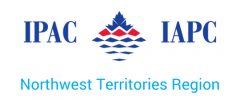As part of its Book Review Forum, the IPAC NWT Regional Group is pleased to present the following review of Peter. H. Russell’s Canada’s Odyssey: A Country Based on Incomplete Conquests. Toronto: University of Toronto Press (2017).
 Peter Russell is a professor of constitutional law and politics at the University of Toronto, whose life’s work has been leading up to Canada’s Odyssey. His new book is a clear-eyed account of Canada’s political and legal history, “not a history but an a
Peter Russell is a professor of constitutional law and politics at the University of Toronto, whose life’s work has been leading up to Canada’s Odyssey. His new book is a clear-eyed account of Canada’s political and legal history, “not a history but an a
rgument about Canadian history” (p. 4). Of interest to Northern readers, much of the groundwork for his book was laid during his work for the Indian Brotherhood (now the Dene Nation) during the Berger Inquiry in the 1970s.
Russell’s submission to the Inquiry, “The Dene Nation and Confederation,” later published in Dene Nation: The Colony Within (1977), introduces the themes he develops more fully in Canada’s Odyssey; namely, how do Indigenous peoples fit within the principles of the Canadian constitution? How can Canada respond to Dene and other Indigenous claims for recognition of rights and title?
Russell’s premise is that while three competing narratives of the country have vied for supremacy—French, English, and Indigenous—none have “conquered”, and so Canada’s narrative, or narratives, continue. First contact between European settlers and Indigenous peoples in what is now Canada was based on misunderstanding, ignorance, arrogance, and exploitation. Canada did not conquer the Indigenous peoples, but is now faced with new calls for reconciliation and recognition of Indigenous rights and title. Russell explores this history in six parts. Parts One and Two, “The Founding Pillars” and “Trying to Complete the Conquests”, focus on the eighteenth century and transition to the nineteenth, and lead Russell to a conclusion that informs the balance of the book. He argues that “the existence of nations or peoples preceding Britain’s imperial presence in Canada, and Britain’s decision not to attempt a complete conquest of these peoples, are the crucial facts about Canada’s founding” (p. 85)
Part Three focuses on the processes of Confederation that took place in 1867. As Russell points out, via Confederation and the passage of the British North America Act, English Canada gains a Dominion, French Canada a province, and Indigenous Canada nothing, except as a responsibility assigned to the federal government by this new constitution for a new multiracial country. Parts Four and Five, “The Three Pillars to the Second World War” and “Transformation of the Pillars”, focus on the first and second halves of the twentieth century, respectively. With the emergence of international human rights norms and instruments following World War II and the passage of the Canadian Charter of Rights and Freedoms in 1982, the recognition of Indigenous and treaty rights becomes increasingly important, as do the demands on the federal government to recognize and give effect to those rights.
Part Six, “Seeking a Constitutional Fix”, concludes with a historical perspective on Canada’s possible futures. As Canada passes its 150th birthday, Russell’s book is a timely reminder of its history and unfinished business. He demonstrates that Canada is a nation of “uncompleted conquests” rather than a homogenous nation state, both a multinational and multicultural state, and always evolving. Russell suggests that:
As a country or society, Canada might always be a work in progress. We make the best progress in living well together when we learn more about those we see as “the other”—Canadians not in our own pillar. Canadians are not supposed to think of themselves in grandiose ways—but I do suggest, in closing the book, that what we have learned about living well together could be of value to all of humankind. Multinational, multicultural Canada might offer more useful guidance for what lies ahead for the peoples of this planet than the tidy model of the single-nation sovereign state. Indeed Canada might be more like a civilization than a nation-state. As an example of how diverse peoples can live together in freedom and peace, this loose, never settled alliance of peoples called Canada could replace empire and nation-state as the most attractive model in the twenty-first century (p. 19).
Canada’s Odyssey is more than a dry political tome or university text. While it may not be an entertaining read, it is certainly a compelling one. Russell manages to combine an academic history of Canada with a popular one, which makes for both an educational and engaging tour of our shared constitutional and political history.
Over forty years ago in “The Dene Nation and Confederation” Russell concluded that “the type of land settlement which the Dene people wish to negotiate with the federal government, far from violating Canada’s constitution, calls for the extension to them of the fundamental principles underlying Confederation.” In Canada’s Odyssey, Russell has expanded and extended his original thesis and, in doing so, has mapped for us one possible path to a shared future
This review was authored by Scott Duke, Legal Counsel, Department of Justice Canada. Scott lives, works, and fishes in Yellowknife, Northwest Territories. This review was prepared for Northern Public Affairs magazine by the Institute of Public Administration of Canada’s (IPAC) NWT Regional Group. Please note that the views expressed herein are those of the author and do not necessarily reflect the policy or position of IPAC, the Department of Justice Canada, or the Government of Canada. Many thanks to University of Toronto Press for providing a courtesy copy for our review.

